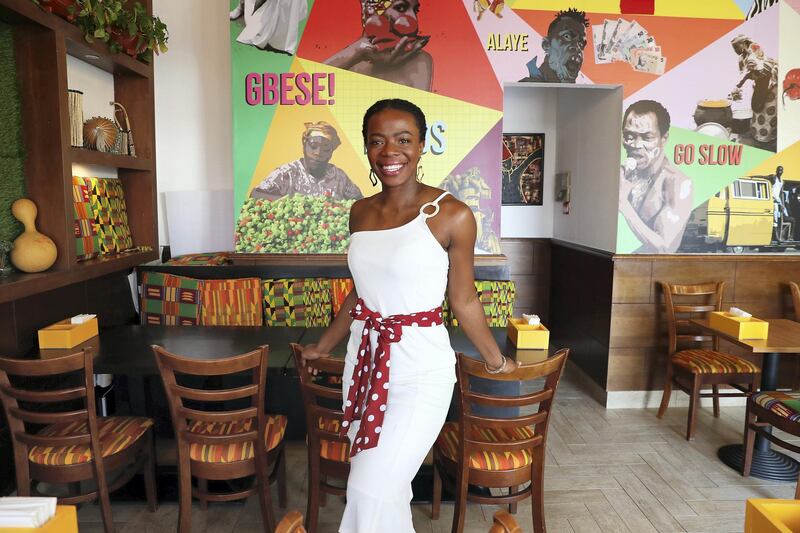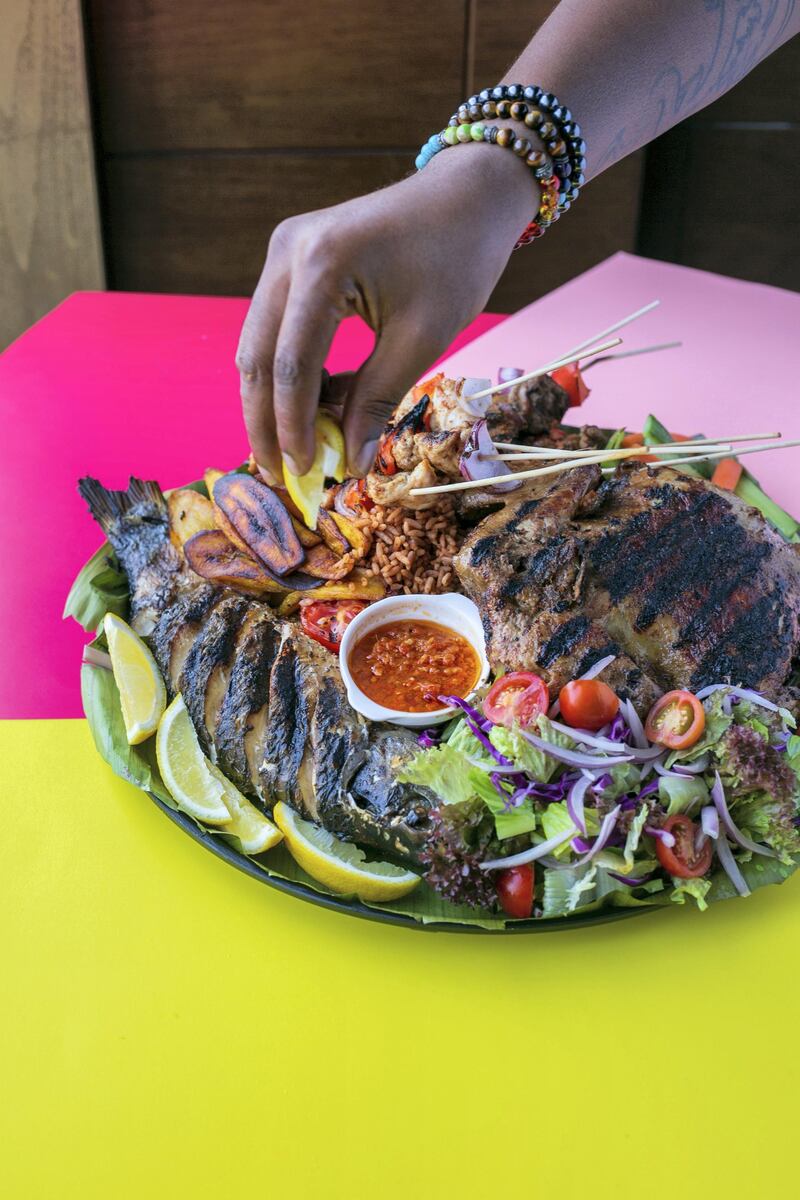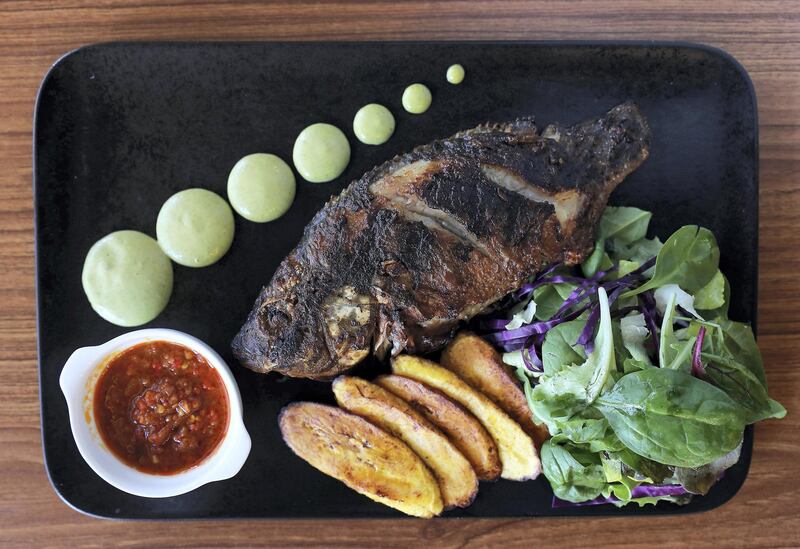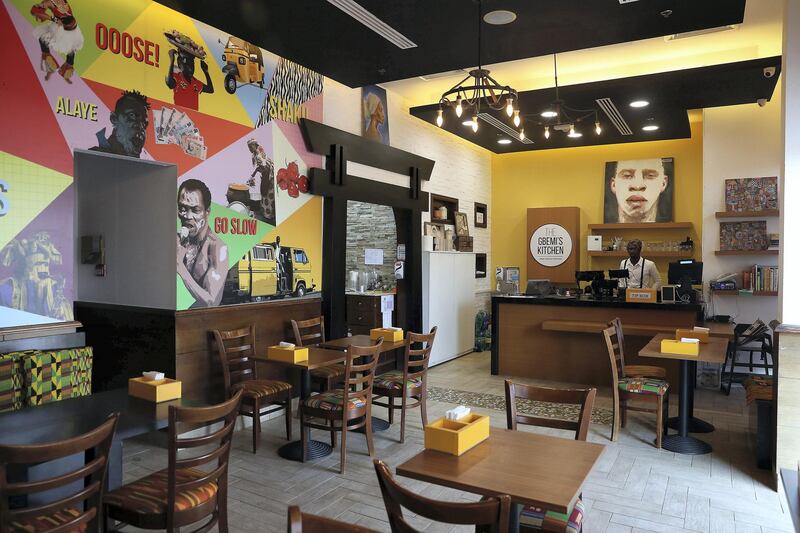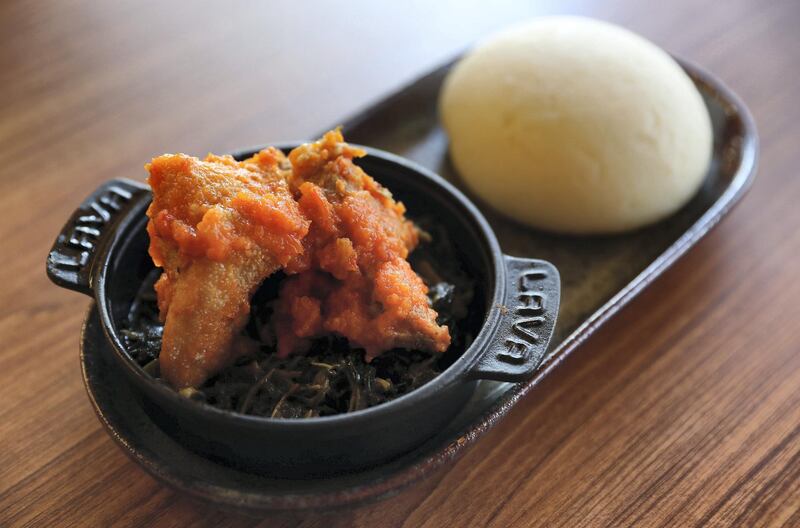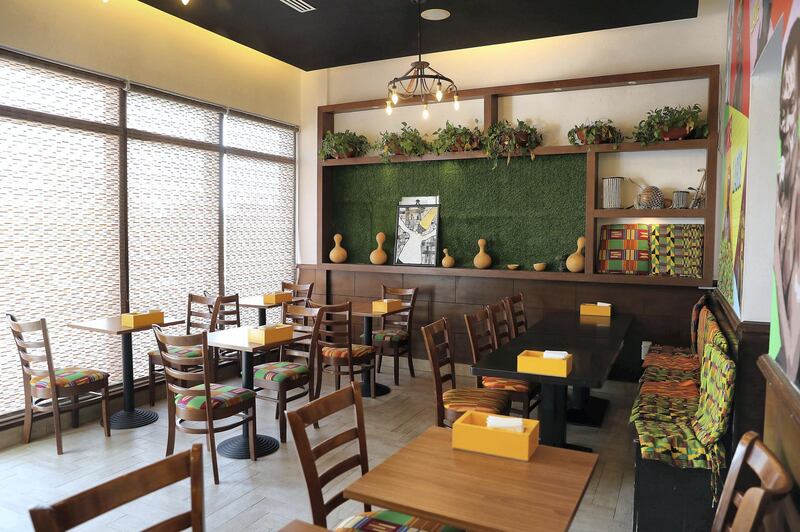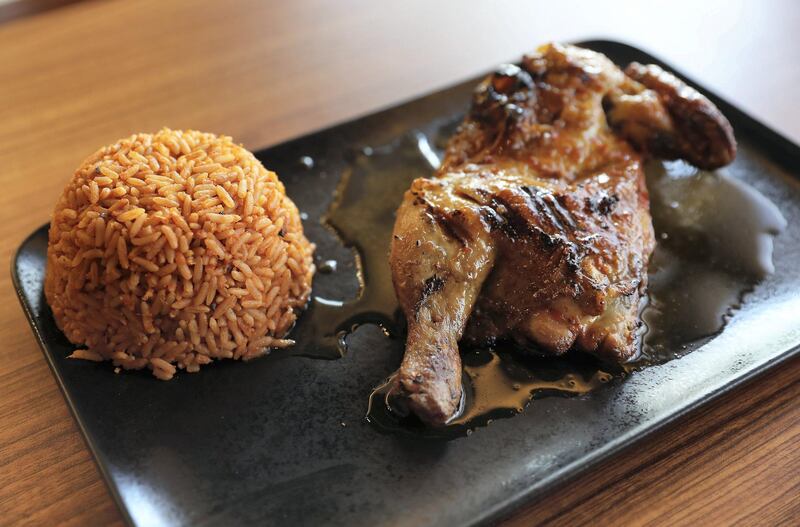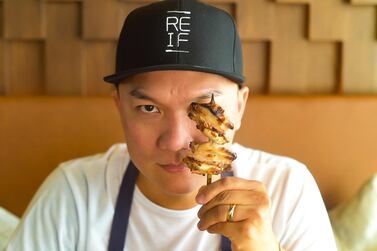When Gbemi Giwa went into the food business a year ago, seemingly armed only with a large social media following and a blog, it might have been easy for people to write her off.
After all, given today’s prolific digital climate, the terms “blogger” or “influencer” rarely translate to “successful entrepreneur”. And by definition, that was what Giwa was, having run her successful DubaiFitFoodie website and accompanying Instagram handle for several years.
Giwa moved from Nigeria to Dubai with her family, including her 11 siblings, at age 16. She quickly became a hit online after she began sharing her workout routines, which encompassed everything from CrossFit to cycling and running to dance tutorials. She also, of course, incorporated her Nigeria-inspired recipes.
Today, her Instagram feed is populated with vibrant pictures of her culinary creations or of her in various states of movement. And yet, she is so much more than a colourful juxtaposition of squares on a phone screen. As well as continuing to run her website, she’s also an athlete, dancer and, today, a successful restaurateur. And she’s only 26 years old.
It all started with her now-popular delivery-only eatery, Catfish, which shook up the Dubai food scene when it launched a year ago, offering a unique, healthy take on African cuisine. It was her first proper foray into the food industry. It was a risk, she acknowledges, but one that paid off.
"Our concept to mix 'healthy' food with 'African' flavours was completely new and untested in the Dubai market and, despite our plans and convictions, we just weren't sure how it was going to go," she tells The National.
“Fortunately for us, after six months of operations, it became glaringly clear to us that there was an unfulfilled niche for authentic African food in the market.”
This leads us to November 1, 2019, the date her second business launched. Called The Gbemi’s Kitchen (TGK), it is both an extension of Catfish, and the delivery concept’s new physical home.
Her first project once ran out of the Kitchen Nation incubator in Business Bay, but now comes under The Gbemi’s Kitchen umbrella at its spot in Cluster R, JLT. So, if you order Catfish today, it’s going to come from there, as opposed to Business Bay. And while her first menu remains delivery-only, this location is where you can go to experience Nigerian cuisine in a physical restaurant.
Putting down roots in bricks and mortar wasn’t an overnight decision. Giwa’s management company already oversees three online-only brands – Catfish, Salad Loco and Vegan AF – so scouting for a physical space was the logical next step. JLT was an ideal location as it’s a “foodie hub”, she says.
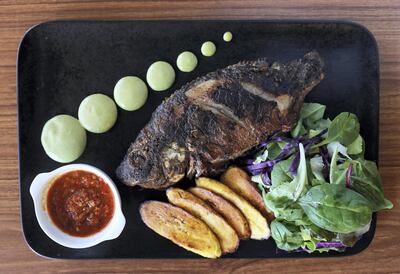
But, just in case, the team ran a dark kitchen (a delivery-only concept where a group of restaurants pool resources and operate out of a shared space to save on costs) in JLT for a few months before taking the leap and securing their current space. This, she says, “allowed us to test the demand and monitor the food traffic”.
“Once we secured the funding for the expansion, the first thing we did was find a physical location and we were lucky enough to get a space that worked with our budget and was big enough to contain our operations,” she says of her new Al Waleed Paradise premises.
“Beyond food delivery, we want people to come and physically interact with us through our food, space and service, with a sole mission of sharing the spirit of Africa one bite at a time.”
The African theme certainly carries through into the physical space – from the decor to the warm hospitality you’re afforded as soon as you step in the door. And Giwa’s touch is behind almost all of it.
She designed all of the restaurant’s logos and graphics, while also doing all of the eatery’s photography, videography and its social and digital media brand direction. She also designed the large, eye-catching mural that greets you upon entering. It features people, words and elements that are reminiscent of her home town of Lagos. This includes Afrobeat pioneer Fela Kuti, a roadside cook making classic jollof rice, street hawkers and a molue, a popular form of bus transportation in Nigeria.
Phrases such as "wetin dey" (how are you?) are part of Giwa's everyday lingo in Dubai, and so they, too, made the wall, encased in speech bubbles. Meanwhile, the eclectic furniture has been reupholstered with Kente fabric from Ghana and there are art pieces by African artists dotted around.
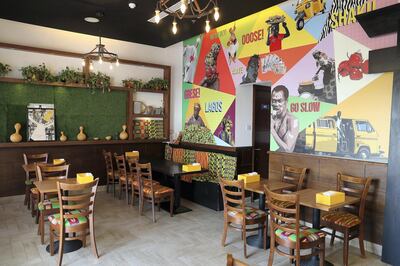
But what about the food, you ask? Well, if you’re familiar with Catfish, then the menu at The Gbemi’s Kitchen won’t come as a surprise, as some items seem to cross over. There’s a lot of jollof, amaranth, suya and a couple of the famed bowls also make an appearance. However, Giwa is quick to stress that they are actually not too similar at all.
"Both brands were born of a similar objective, which is to make African foods more accessible to the region. At first glance, the menu may look similar because of common items such as jollof, which is ideal because both menus are representative of African cuisine. But on close inspection you will find that they are distinctly different.
"While the Catfish menu focus on nutritional bowls built around seasonal vegetables and lean proteins marinated with West African spices, TGK has a different direction. The menu features classic dishes that can be found in almost every Nigerian home, exactly the way your mum would make it." Examples of this come in the form of pounded yam and efo riro (a kind of spinach stew), eba and egusi (dried cassava flour mixed with hot water and a sort of melon seed soup). Patrons are encouraged to share dishes and eat with their hands.
You’ll also often find Giwa herself rushing about on the floor, taking orders and serving customers. She admits she is “very hands-on”. “Interacting with the customers is very important to me,” she adds. “The goal is for me to one day take a step back, but I’m just 26 and I enjoy getting my hands dirty.”
It seems a lot to take on, but Giwa has taken it all in her stride. Reflecting on her past year in business, she says she’s proud of how far her team has come, while also acknowledging there have been many obstacles along the way. “It’s been a rollercoaster ride, going into this business at quite a young age with limited experience and the current state of Dubai’s food and beverage market. There were bound to be several challenges, but we have pushed through.”
Giwa is already looking for the next challenge. She says she’d like to franchise Catfish and is mulling over an international expansion. She’s also keen to explore the agricultural space in her homeland, perhaps creating job opportunities for Nigerian people on their ample arable land.
“I think my journey with food is very full circle. Food blogger turns restaurateur turns farmer? The demand we see for West African food products has made me confident that this is the next step.
“I want to put Nigerian produce in supermarket aisles across the world. The project is bigger than anything I’ve done before and it will require building infrastructure, securing the right funding, making the right connections. You know, all the fun stuff.”
